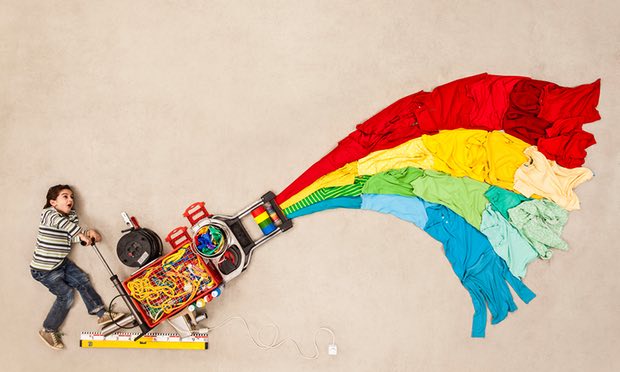There are few words more misunderstood than the term “science”. If you relied on the subject categories in some media outlets, you’d be forgiven for taking home the message that “science” is gadgets and technology, or pretty pictures of flowers and insects, or the latest health advice.
But none of this stuff is really “science”. Science is a method for finding out how things work. In its simplest guise, a question is posed, a potential answer framed, and then an experiment designed and performed to see if the answer is right.
What scientists actually do is slightly more complicated. We include controls to make sure that the interpretation is sound. We remove elements that could lead to bias, and we also repeat experiments a number of times, with a lot of samples or subjects, to help rule out the possibility that our answer is a chance result. It takes years to learn how to set up meaningful experiments properly.
Of course I do understand why “science” is largely synonymous with the exciting fruits of its labour – Mars landers, cancer cures, Higgs bosons – as opposed to how you go about discovering those things in the first place. Science, as a subject, exerts a strong repulsion in a significant fraction of our society: it’s at best boring and complicated, and at worst, frightening.
In most short-form public accounts of science, there isn’t space – or assumed audience attention span – to go through the story behind a discovery. This is despite a good scientific story being as compelling as a murder mystery, given the right treatment.
Perhaps the need to entice people gently on-side is a good enough excuse for what typically gets trotted out as science. On TV or videos for children, science is often all about explosions, whizz-bang stuff that is heavy on shock and awe but somewhat light on the why.
Meanwhile, staples such as the vinegar and baking soda volcano might be fun, and might attract interest in science, but what is the underlying hypothesis? The answer usually is that there isn’t one. The exercise is a demonstration of a physical property, but this is not proper investigation.
When “science” isn’t about blowing things up, it’s often descriptive: collecting beetles or leaves, measuring atmospheric pressure, making a diorama of the solar system. This treatment can be fun, and can inspire – but again, there is usually no problem to solve.
The rudiments of the scientific method are indeed part of the UK primary school curriculum, starting from year 1 and escalating year on year. But based on what I’ve witnessed in undergraduate biology cohorts, these principles are not uniformly absorbed by all.
Similarly, given the wholesale credulity of people earnestly consuming pseudoscientific remedies these days, it’s not clear how much of the art of doing science or the proper ways of critically assessing scientific evidence is getting through in school.
Could it be that learning about hypotheses and the scientific method is too difficult and off-putting for children, such that it just doesn’t stick? And would it be helpful if the concepts were introduced as early as possible?
I started to ponder this when my son began to speak, a year or so back. As any parent can tell you, “why” quickly becomes the most common question you field. And it’s relentless. One explanation solicits further sub-whys until before you know it, in a piping, high-on-helium voice that allows no evasion, your child has grilled you to the limits of what you – or modern science as a whole – actually understand. Not bad for a two-foot-high creature who still lacks bladder-control skills and can’t run for more than ten metres without falling over.
If you look beyond the potential annoyance, something deep, even obvious, is apparent. Very small children seem hardwired to try to process the unknown in terms of questions: the first step of the scientific method. Later, this urge seems to ebb in most people. Why is this?
Perhaps the intense curiosity of a toddler is only a developmental phase. Or more worryingly, natural curiosity might be squelched by exasperated, sleep-deprived parental rejoinders such as “just because” – or by formalised learning of long lists of scientific facts. (One of my step-daughters once brought home a summary of her year 7 school science curriculum: the entire programme seemed to be based solely on weights and measures.)
Either way, if toddlers are naturally prone to being good scientists, are we as a society somehow missing a window of opportunity? I began to wonder how much of the rudiments of the scientific method are dealt with in the pre-school phase.
In the UK at least, learning and development from birth through to the age of five is governed by the of the Early Years Foundation Stage (EYFS) framework. “Understanding The World” is a specific area in this framework, covering the stimulation of the five senses, and encouraging exploration. From my experience with my son’s nursery, this curriculum is usually expressed as arts and crafts: bubble play, painting with plants as brushes, making ice cubes with things trapped inside them. The children love it, but it’s not quite what I have in mind when I think of doing science.
I’m under no illusion that setting up a testable hypothesis and running a meaningful experiment in that age group is even remotely easy. But is it even possible? I am about to find out: my son’s nursery has asked me to come and “do some science” with the kids in a few weeks’ time. I am looking forward to making this experience my own personal experiment into how much scientific method a group of three-year-olds can handle.

